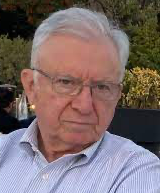
“Yumuşama” in Türkiye
During the past two weeks, the word “yumuşama” was widely used to describe “political change” in Türkiye. Though I know what some matching words are in English, I nonetheless looked up in the dictionary for alternatives. Among those were “moderation”, “softening”, “mellowing”, “relentment”, and “détente”. Being a retired diplomat, I was tempted at first to go inadvertently for “détente”. Inadvertently because the “policy of détente” refers to the time in the 1960s-1970s when the two superpowers, the USSR and the US eased tension and tried to cooperate to avoid conflict. It was a process.
Détente was based on new understandings and approaches in the foreign and security policies of Washington and Moscow. Among its authors were Willy Brandt, Egon Bahr, Richard Nixon, Henry Kissinger, Leonid Brezhnev, and Andrei Gromyko. Its crowning achievements were the signing of SALT I on May 26, 1972, and the ratification of the Helsinki Final Act of the CSCE in mid-1975. Thus, “détente” could not be the right English word for the “yumuşama” in Türkiye.
The recent popularity of the word “yumuşama” was triggered by the visits of Mr. Özgür Özel, the new leader of the main opposition Republican People’s Party (CHP) to President and leader of the AKP Recep Tayyip Erdoğan, as well as Mr. Devlet Bahçeli, the leader of AKP’s junior partner, the Nationalist Movement Party (MHP). Indeed, during the past decade at least, the “meetings” between President Erdoğan and opposition leaders were confined to icy handshakes on national day ceremonies or other official occasions. They were never seen sitting around a table. There were no tables, and one empty chair on Mr. Özel’s visit to President Erdoğan. The picture reminded me of “Empty Chairs at Empty Tables”, a popular song from the musical “Les Misérables”. Yes, reminded me but only of the title, because the lyrics tell a different story. It remains to be seen whether or not seating arrangements would become an obstacle to his prospective return visit to the CHP.
Defining the outcome of these two visits in terms of “moderation”, “softening”, “mellowing”, “relentment” would also be a huge exaggeration.
The AKP government constantly claims that it represents noble principles, respect for international law, justice, and toughness in standing up for what is right. The word “mistake” does not exist in AKP’s lexicon. Years of this assertive Islamist policy, however, have left us with few friends, if any. Regardless, the AKP once called it “precious loneliness”. The term is now conveniently forgotten but the sad reality of self-inflicted isolation remains. Today Syria and Israel are at war. And strangely enough, we are at war with both, verbally and commercially with the latter. This coupled with the results of the last municipal election may convince the AKP leadership that it must take a few tactical steps to regain support in the country and abroad.
Thus, indications are that there may be developments in the cases of some long-jailed generals who are suffering from old age and serious health problems. Perhaps Osman Kavala too may be released. Some steps may also be taken to fight galloping inflation, waste, and corruption. But these would not represent changes in AKP’s authoritarian mentality or worldview. They would only be the reflections of their survival instincts.
To conclude, meetings among a country’s political leaders are at least an act of civility. But as I said in a post immediately after Türkiye’s last municipal election on March 31, 2024:
• The principal task for Türkiye’s opposition is to carry the momentum to the next general and presidential elections. Because only that would guarantee a return to Türkiye’s founding Republican principles, among them secularism, and to parliamentary democracy.
• The mayors of Ankara and İstanbul, Mr. Yavaş and Mr. İmamoğlu have won stunning victories, with more than expected margins. They and the new and energetic leader of the CHP, Mr. Özel, would be wise to remain in constant dialogue with each other to ensure that they and the party remain united, devoted to Atatürk’s legacy, its top priority being the restoration of Türkiye’s parliamentary democracy. Thus, they must carefully prepare the path for the next general and presidential elections in May 2028, perhaps an earlier one.
• Their personal dialogue, their camaraderie, and their continuing trust in one another are of fundamental importance for Türkiye’s future. Pursuing personal political objectives is understandable but only up to a point. In this connection, these three leaders must ensure that the CHP mayors fulfill expectations and vigorously fight corruption.
Last week, the BBC reported that 11% of those trying to cross the Channel in small migrant boats are Turks.[i] Because we are dangerously close to becoming the country of “Les Misérables”.
[i] https://www.bbc.com/news/uk-53699511
